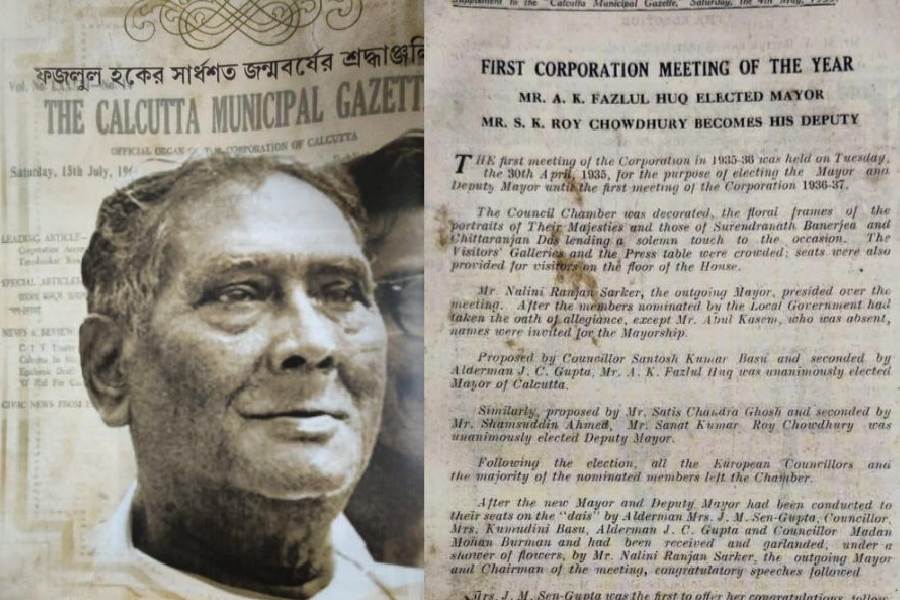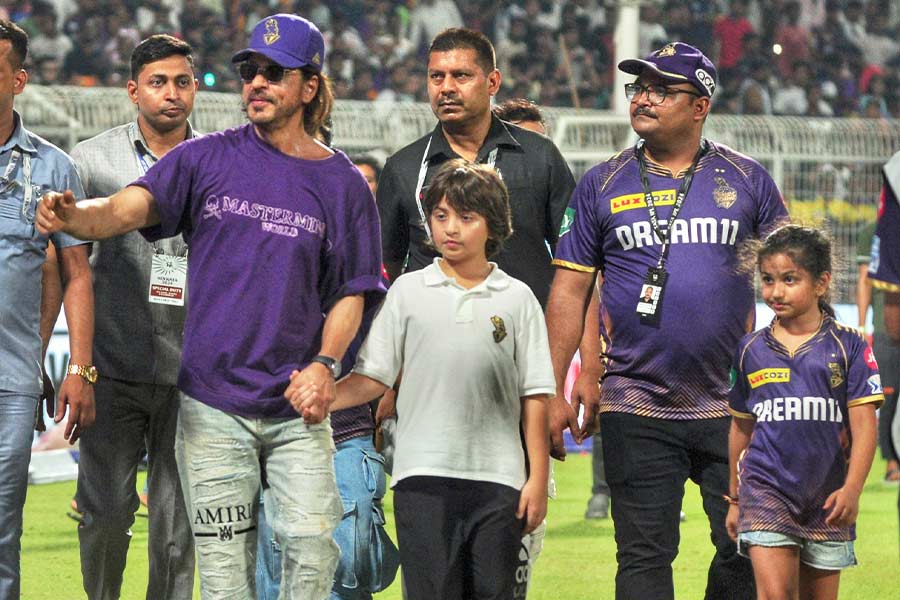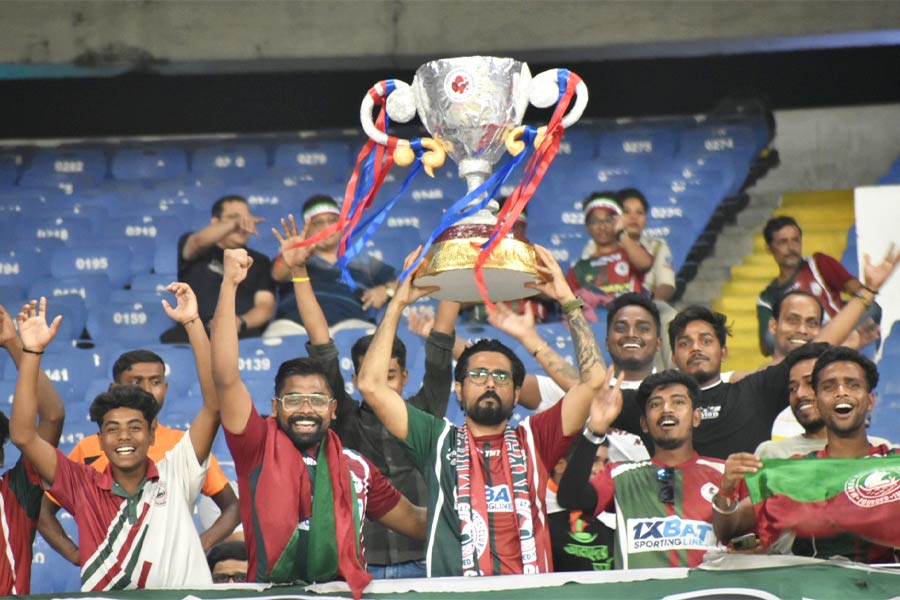The 150th birth anniversary of the city’s first Muslim mayor, whose inaugural speech stressed the need for Hindus and Muslims to work together, was celebrated recently. The Kolkata Municipal Corporation has dedicated nearly half of the December issue of its official magazine, Purasree, to Fazlul Huq.
The first speech of Abul Kasem Fazlul Huq after he was elected mayor of Kolkata referred to fresh incidents of communal strife in the country, but he also added that despite the differences the two communities had a “bond”.
He referred to his deputy, Sanat Kumar Roy Chowdhury, as “Hindu Kayastha” while trying to prove Hindus and Muslims could work together.
Historians said Huq’s speech on amity should find resonance in today’s India.
Huq was elected mayor on April 30, 1935. By then communal tension had reared its head in India and Bengal, said Suranjan Das, a historian who has researched extensively on communal politics of the time.
Huq’s first speech debunked the belief that Hindus and Muslims were irreconcilable.
“Anek-e achhen jara mone koren, Bharatbarshe Hindu o Muslim-ra sudhumatra bibad korar jonno o aeke aparer gawla katar jonno bash korchhe. Tara Kanpur-er katha bolen, Firozabad-e bhayabohotar katha bolen, Ranchi o ananyo jaygar katha bolen. Era bolen Bharatbarsher bhabishyat andhakar ebong ei dui sampraday kokhonoi sadharan samjhotay pounchhote parbe na. (There are many who believe that Hindus and Muslims are there in India only to fight each other, to cut each others’ throats. They refer to incidents in Kanpur, Firozabad, Ranchi and other places. They say that the future of India is bleak and the two communities will never be able to reach a general understanding),” reads Huq’s speech, taken from the Kolkata Municipal Gazette.
It is then that Huq refers to the Hindu deputy mayor.
“To my right (pointing to the deputy mayor) is a Hindu Kayastha... Whatever be the differences between us, we also have a heartfelt bond, which is the life force within the diversity of India,” the speech reads.
A CMC official said that the original speech, in the Gazette, is in Bengali. It has been reproduced in the Purasree. A CMC official said the civic body does write about former mayors and others involved with the corporation on their 100th or 150th birth anniversaries.
Huq, who had floated the Krishak Praja Party, was a spokesperson for the Hindu-Muslim united front, said Amit Dey, a descendant.
Dey’s mother, Naseema Banu Dey, was Huq’s granddaughter. “My mother once told me that Fazlul Huq had no answer when his nephews expressed displeasure about him joining hands with the Muslim League at their home in Park Circus. My mother felt Huq realised he did not even have support at home,” said Amit Dey, an Asutosh professor of medieval and modern history at Calcutta University.
In the 1937 provincial elections, Huq’s Krishak Praja Party was the single largest party in Bengal. Despite being opposed to the Muslim League, KPP formed the government with the League because of differences with the Congress.
“Many say it was because Congress wanted the post of the Prime Minister that the KPP and Congress parted ways, but there were stronger ideological differences between them,” said Suranjan Das, a former vice-chancellor of Calcutta University and Jadavpur University.
“Krishak Praja Party fought for the interests of peasants. Muslims formed the majority in undivided Bengal. The majority of peasants were also Muslims and they formed the core of the KPP’s support. However, landowners were mostly Hindus and were supporters of the Congress. This led to a clash of ideologies and class interests,” said Das.
Post-Independence, the incumbent, Firhad Hakim, is the first Muslim mayor.
“This also shows that parties like the Congress or the Left Front, who had a commitment towards secular ideals, were not able to increase the representation of Muslims in politics,” said Das.






